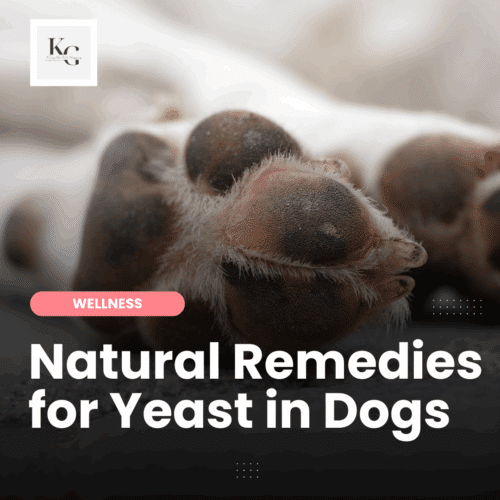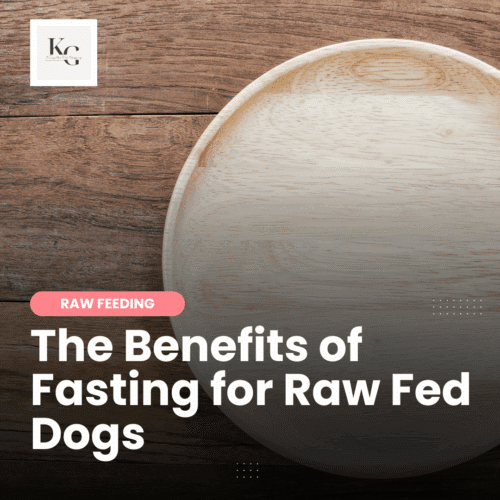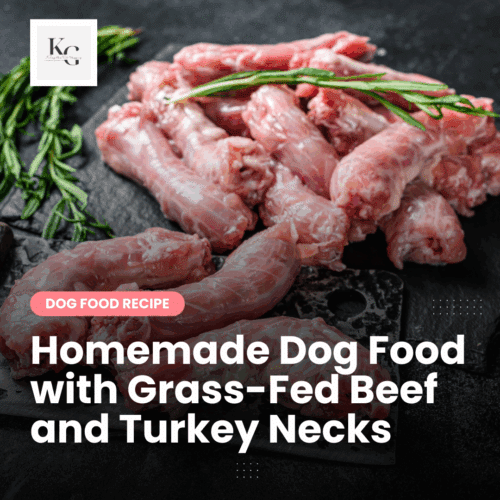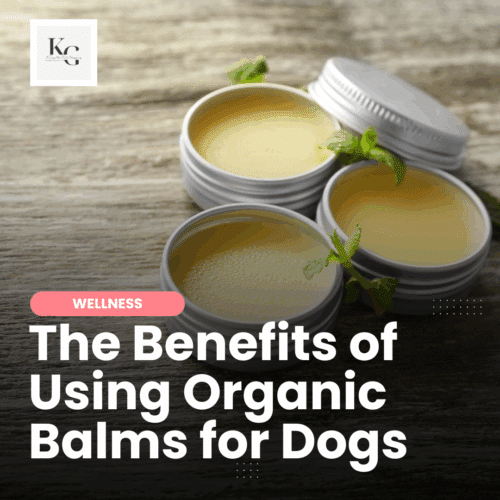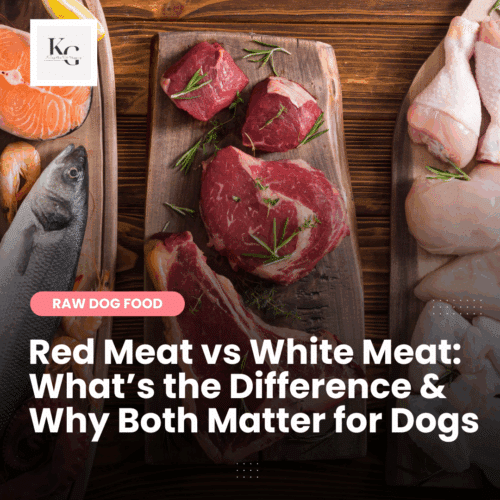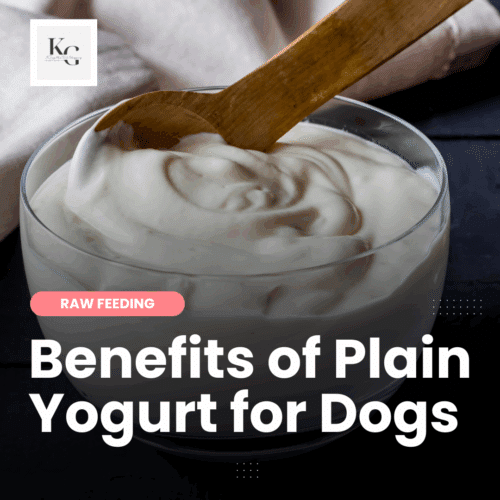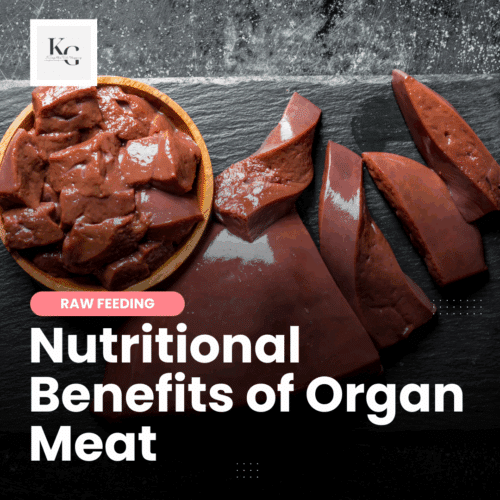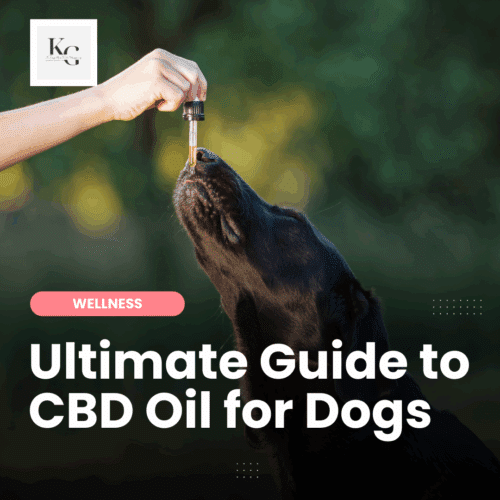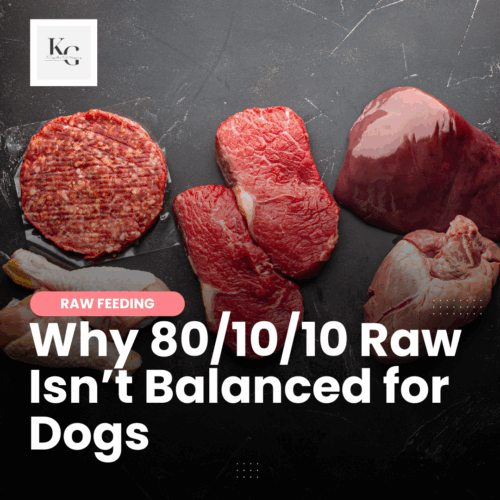Keep the Tail Wagging is supported by pet parents. I occasionally earn a commission (at no additional cost to you) when you click through an affiliate link to one of my favorite products. Thank you for your support. Read More
It makes me laugh when I see an article that warns pet parents to avoid feeding raw due to salmonella. When you read these articles, they are completely unbalanced in that they never discuss the many places a dog can pick up salmonella. Instead, pet parents walk away thinking that raw is dangerous and this couldn't be further from the truth. I recently came across a discussion where a pet parent was slamming a raw food company because the food allegedly gave their dog salmonella. As I read the comments, it became clear that the pet parent (1) had her dog's feces tested for salmonella several weeks after feeding a raw diet, and (2) didn't understand that the raw food may not have been the culprit. This inspired me to dig into the many ways our dogs can pick up salmonella.
Now, as people read this, they may think that some or all of these ways are impossible because their dog doesn't eat random things. But let's be honest. We're not with our dogs all day, every day. I think many people would be astounded by what their sweet little dog gets into when they aren't looking. They are animals, after all.
How to Tell if a Dog Has Contracted Salmonellosis
I've read that most dogs have salmonella in their system and shed it in their feces. The reason our dogs don't get sick is that they have an acidic digestive system making it hard for salmonella to me setting up camp and becoming an issue in healthy dogs. What really sucks is that salmonella can be transmitted from our dogs to us. This can happen when we pick up poop – how many people do this with a poop bag, but don't wash their hands? That plastic is still porous – wash your damn hands! And some say that we can get it when we allow our dogs to lick us. I'm not concerned about salmonella sickness. I live in a house with five affectionate dogs and I wash my hands a lot. So while the risk may be there, I think in our home it's very low.
Dogs with a weaker immune system may contract salmonellosis (the illness that is caused by an overabundance of salmonella) and exhibit the following symptoms, which are also seen in humans:
- diarrhea
- fever
- vomiting
- loss of appetite
- listlessness
- dehydration
If you're concerned that your dog has contracted salmonellosis, please contact your veterinarian to schedule a fecal test.
7 Ways Your Dog Can Be Exposed to Salmonella
1 – Dogs Can Get Salmonella from Feces
If you have a dog that likes to eat poop, then don't go to the dog park because it seems like half the people there don't pick up after their dogs.
Dogs can get salmonella from eating the feces of infected animals – not just other dogs. Yuck! A dog's habit of eating poop sucks for pet parents and I get it first hand. Puppies may eat poop out of curiosity. Some dogs pick up the habit if they lived in filthy conditions. Some dogs eat poop because their diet lacks the enzyme they need. And some dogs like the taste. Whatever the reason, it's not something pet parents are going to cheer about and would prefer to resolve.
If you have a dog that is eating stool, I recommend three steps, which worked with my dogs:
1 – Train your dog to “leave it.” I began going outside with the offending dog and watching their behavior. If they began sniffing poop, I wasn't concerned. That's normal behavior. But once it looked like they were going to take a bite, I delivered a firm “LEAVE IT!”
2 – Clean the dog's yard daily. Because we both work full time, I'm unable to pick up poop right when it drops. It's not until I get home from work that I could clean the yard. It's a nasty chore, but I do it with a smile (well, not really). In the winter, I wear a headlamp and pick up poop in the dark. This allows me to keep the yard clean, remove temptation, and to keep an eye on how the dogs were doing with their diet (the poop knows).
3 – Add a digestive enzyme to the diet. I started with FullBucket Canine Supplement, the only supplement that I recommend because of how well it worked with my dogs. Today, I simply add fermented foods to my dogs' diet (fermented fish stock, kefir, raw goat's milk, fermented vegetables, and seeds). And Rodrigo, my EPI dog, gets a supplement specific to his condition.
2 – Dogs Can Get Salmonella from Standing Water
Do you have a dog that likes to drink standing water on your walks? This could be an issue depending on where you live. If people aren't picking up after their dogs, the stool can wash into creeks and other bodies of water. If you live near farms or a processing plant, the poop from the animals can be washed into nearby streams. Sucks, right? Salmonella lives everywhere, it seems.
I don't allow our dogs to drink standing water, however, they have gotten a lick here and there before I could stop them. I've found that bringing a water bottle on our long walks prevents the drinking of random water. Instead, they drink from the bottle.
3 – Dogs Can Get Salmonella from Rodents
Do you have a hunter or a dog with a high prey drive? If you have a dog that will catch, kill, and eat a rodent, then your dog may be at a higher risk of ingesting salmonella. Now that our days are longer (it's Spring), I'm taking a few of my dogs on daily walks to tamper down on that excess energy, to keep them in shape, and to lose weight (me, not them, they're perfect). We're seeing a lot of rodents (or some small mice creatures) that are dead on the side of the trail (hit by cyclists?) and the other day Scout picked one up (and then dropped it). Yuck! No kisses for him! But that is a concern. My dogs will dig them up in the yard, hunt them in high grass, they even snacked on a dead rabbit for a few days before I found it – gross! This is just their nature, but it does come with a risk.
4 – Dogs Can Get Salmonella from Bird Droppings
We're in the process of planning a new yard for the dogs and one thing that is on the planning board is to avoid making space for birds to build a nest. This is a problem because the baby birds will be killed if they fall out of the nest or when they are learning to fly. My dogs are beasts. And the bird droppings can carry salmonella.
Raising chickens increases the risk as well. Chickens are known for being a haven of salmonella. Of course, maybe it's worse with factory-farmed chickens, I don't know. But, for this post, I'm more concerned about chicken poop. If the dogs are allowed to interact with the chickens, it's important to keep them from ingesting the chicken poop.
5 – Dogs Can Get Salmonella from Pet Food
Yep, you read that right. There has been kibble recalls due to salmonella, which is surprising considering how often kibble is cooked and the high temperatures used. At some point in time during the process of making kibble, the food can be infected again with salmonella. I haven't seen many of these recalls of late because the focus seems to be more focused on raw dog food. So, let's talk about raw. Can dogs get salmonella from raw dog food? Yes, technically they can. If they are eating raw dog food that has salmonella, then the dog will ingest it. But is it a problem? More on that below.
6 – Dogs Can Get Salmonella from Reptiles
We live in a rural area and we have several ponds on or property with frogs and garter snakes. If our dogs lick or eat one of these reptiles, they are at risk of ingesting salmonella. One of our dogs, I can't remember which, ate a snake and vomited it up almost whole. I still cringe at the sight. I had to clean it up and used a half a roll of paper towels for this task. It was so gross. My dog didn't get sick, but it was a risk. We discourage the dogs from chasing wildlife and that includes snakes and frogs. It's tough with their prey drive, but necessary. Plus, I love frogs. I can't have my dogs killing frogs. Thankfully, they can't catch them.
7 – Dogs Can Get Salmonella from Grass
No, this is a concern because my dogs eat grass all the time and I know that I'm not alone. My dogs eat grass for nutrients, for fiber, to encourage regurgitation, and because they like it. To think that my dogs could ingest salmonella because of the droppings from wild animals and birds is concerning, but then I remind myself that my dogs have an acidic gut and are better equipped to handle salmonella – but it's still gross. I add a chlorella/spirulina supplement to my dogs' diet, which seems to curb the obsessive grass-eating, but I can't be 100% sure.
How is Salmonellosis Treated?
How salmonellosis is treated depends on the severity. Mild cases can be treated at home with rest as the dog recovers. Some veterinarians will prescribe antibiotics, but this makes me wonder how well this works because while it kills the salmonella, antibiotics also kill healthy bacteria. So it's important to also build up a dog's healthy but biome by adding beneficial bacteria through fermented foods or a trusted digestive supplement.
Severe cases of salmonellosis may require a hospital stay to treat the underlying symptoms, like severe diarrhea and dehydration.
How Pet Parents Can Prevent Illness from Salmonella
If salmonella is a concern, please know that it's something easily avoided. As I stated earlier, when picking up your dogs' stool with a poop bag, wash your hands afterward. I've gotten into the habit of carrying antibacterial gel on my walks for this purpose. I limit our dogs' contact with other dogs by avoiding dog parks, not allowing my dogs to greet on walks, and I don't allow them to drink from standing water, creeks, or ponds we pass on our walks.
When it comes to diet, salmonella isn't a concern because my dogs' stomach environment is highly acidic and doesn't allow for salmonella to set up camp and multiply. And their food (I feed a raw food diet) is frozen when I buy it and it goes straight into the freezer when we get home. And their food isn't allowed to sit out or reach room temperature, which can also encourage the growth of bacterial.
It's important to take steps to improve your dog's gut health. I do this by feeding a diet of fresh food (which brings living enzymes to the bowl) and feeding fermented foods (which are a natural source of probiotics).
And, finally, pick up your dogs' poop and avoid places where people don't pick up after their dogs. Keep the yard clean because even if your dog doesn't eat poop, s/he can walk through it, track it through the house, and ingest it when they lick their paws clean.




